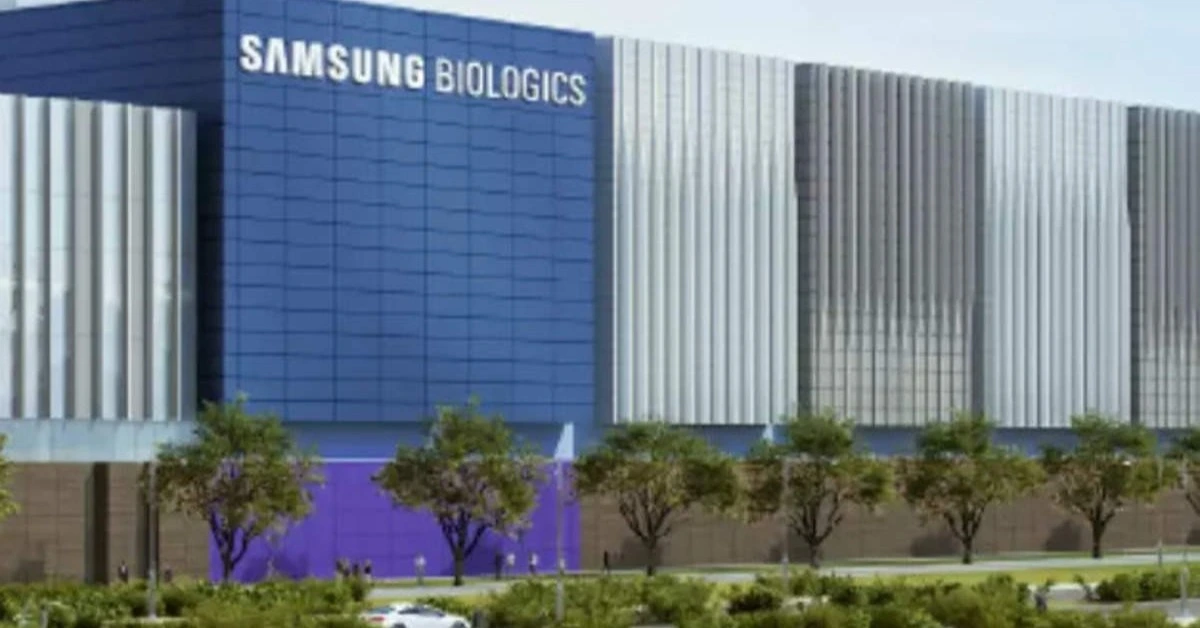
SOUTH KOREA – Samsung Biologics, South Korea’s leading pharmaceutical contract manufacturing organization (CMO) has secured its largest-ever deal, valued at over 2 trillion won (US $1.4 billion).
The deal was signed with a Europe-based company, though Samsung refrained from disclosing the identity of its counterpart due to confidentiality clauses in the contract.
This significant agreement represents 40% of the company’s total CMO contracts signed in 2024, which amounted to over 5.4 trillion won (US $ 3.7 billion).
The contract will remain in effect until the end of 2030. This deal is part of a series of major agreements signed by Samsung Biologics in the past year.
In October, the company secured a contract worth over 1.7 trillion (US $1.2 billion) won with an Asian firm. Additionally, it completed three other deals, each valued at more than 1 trillion won (685.6 million), with companies in key markets such as the United States, Europe, and Asia.
As a result of these high-value deals, Samsung Biologics’ overall sales for 2024 saw a 1.5-fold increase compared to the previous year.
In total, the company’s CDMO contracts in 2024 were worth 5.4 trillion won (US $3.7 billion), marking a 50% growth from 2022.
Since its founding in 2011, Samsung Biologics has accumulated over US $17.6 billion in order values from contracts with 17 of the top 20 global pharmaceutical giants, including names like GlaxoSmithKline, Eli Lilly, AstraZeneca, Moderna, and Novartis.
To meet the growing global demand for its services, the company is expanding its production capacity.
Samsung Biologics’ fifth manufacturing plant, which will have a production capacity of 180,000 liters, is set to begin operations in April. This expansion will raise the company’s total capacity to 784,000 liters annually.
Samsung Biologics has been promoting its contract development and manufacturing capacity to potential investors and buyers at the ongoing J.P. Morgan Healthcare Conference in San Francisco.
Samsung Biologics CEO John Rim emphasized the company’s global competitiveness, pointing to its 99% batch success rate, which ensures high-quality production.
As of December, Samsung Biologics had secured 340 licenses from global regulators, including 41 from the U.S. Food and Drug Administration and 36 from the European Medicines Agency.
“As we are expanding our production capacity and securing more CMO deals, we are also attaining more global licenses,” the company stated. “We have passed license certifying tests by global regulators with the highest rate in the world.”
Mergers and acquisitions
Regarding future growth, Rim discussed Samsung Biologics’ approach to mergers and acquisitions (M&A) in the United States.
While the company is exploring acquisition opportunities, Rim noted that acquiring a plant doesn’t guarantee immediate operational capacity.
Significant renovations and process adjustments might be necessary, potentially delaying production.
“We’ve built more plants than anyone in the world,” Rim said. “Sometimes, we’ve concluded that greenfield development is more efficient and cost-effective for us than acquisitions.”
Rim also addressed the company’s strategy in the biopharmaceutical space, emphasizing that Samsung Biologics has no immediate plans to develop original drugs, unlike its competitor Celltrion, which is venturing into biosimilars and original drug development.
In addition to its manufacturing expansion, Samsung Biologics is focusing on improving its sales network.
To this end, the company announced plans to open a regional office in Tokyo this year, aiming to strengthen partnerships with clients in Japan and other Asian markets.
Looking ahead, Rim revealed that Samsung Biologics is considering the construction of a sixth plant to further boost its capacity.
This plant, which is expected to be completed by 2027, will add another 180,000 liters to the company’s production capacity, bringing the total to 964,000 liters, pending board approval.
XRP HEALTHCARE L.L.C | License Number: 2312867.01 | Dubai | © Copyright 2025 | All Rights Reserved